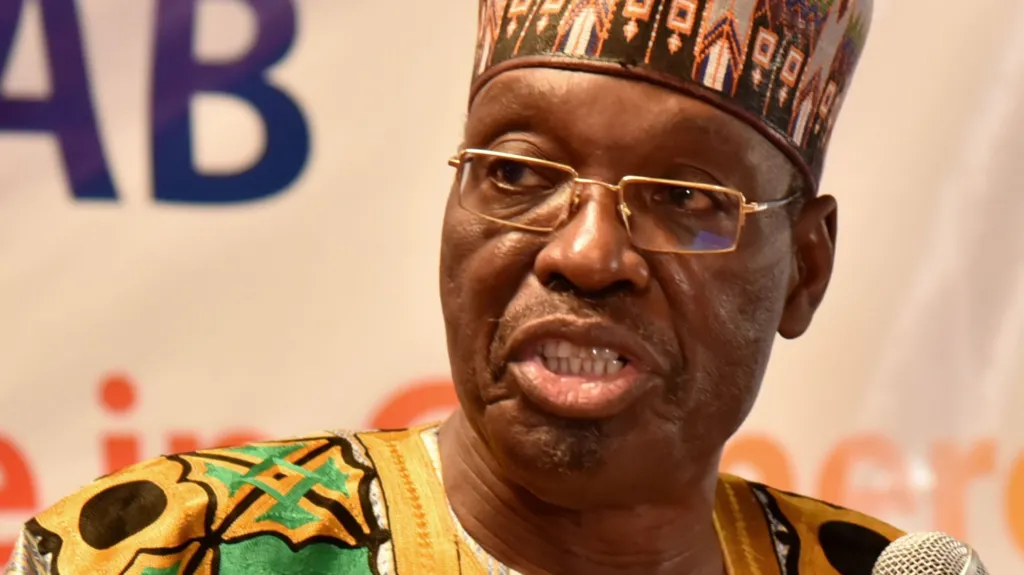Ally of Cameroon president, 92, quits ‘broken’ government to challenge him
3 min read
Cameroon’s former minister defects from Biya’s government, vows reforms as October elections approach
Cameroon’s Veteran Minister Quits ‘Broken’ Government to Challenge 92-Year-Old President
A Bold Exit Ahead of Elections
Issa Tchiroma Bakary, one of Cameroon’s most recognizable political figures and a long-time ally of President Paul Biya, has resigned from his ministerial role in a dramatic political shift. Just four months before the country’s presidential elections, Tchiroma accused the government of “breaking” public trust and vowed to lead the country in a new direction.
“A country cannot exist in the service of one man,” he declared on Wednesday, signaling his break from Biya’s four-decade rule.
From Loyalist to Challenger
Tchiroma has served in numerous senior roles under Biya’s leadership, including as communications minister, government spokesperson, and, until recently, minister of employment. However, his loyalty has often been questioned, particularly during his controversial defense of a viral video that showed Cameroonian soldiers killing civilians—an act he initially denied before backtracking.
Now, as head of the Cameroon National Salvation Front (CNSF), he has aligned himself with the opposition, challenging Biya’s tight grip on power.
Biya’s Long Shadow and Lingering Uncertainty
At 92, President Paul Biya is the world’s oldest head of state and has ruled Cameroon since 1982. Though he has not confirmed a run for an eighth term, the country remains on edge. Reports on his health were banned last year, amid unconfirmed rumors of his death.
Biya’s administration is widely criticized for its handling of national issues, including skyrocketing living costs, corruption, and insecurity. A separatist insurgency in the English-speaking west and jihadist activity in the north have displaced thousands over the last decade.
Tchiroma’s Manifesto for Change

In a 24-page manifesto released a day after his resignation, Tchiroma promised to dismantle what he called “the old system,” which he described as abusive, contemptuous, and overly centralized. One of his key proposals is federalism, with a pledge to hold a referendum to grant more autonomy to Cameroon’s 10 provinces.
Addressing Anglophone Cameroonians, who have long complained of exclusion in the Francophone-dominated system, Tchiroma stated: “You do not need people to speak for you—you need to be listened to. Centralisation has failed.”
Pushback from the Government
Following his announcement, the government swiftly banned all CNSF political activity in a sub-district of the Far North—a region where Tchiroma holds significant sway. The move has raised concerns about the government’s willingness to allow open and competitive elections.
This crackdown echoes recent events involving another presidential contender, Maurice Kamto, who faced a two-day police stakeout after vowing in Paris to protect Biya and his family if elected.
Delayed Democracy and Rising Tensions
Cameroon’s parliamentary elections, originally scheduled for earlier this year, have been postponed until 2026. Human rights organizations have condemned the increasing suppression of dissent and political activity.
With presidential elections approaching in October, the political atmosphere is charged with uncertainty, frustration, and hope for change.
Public Reaction: Divided and Skeptical
Tchiroma’s shift has received mixed reactions. Some view him as a bold figure finally speaking out. Political analyst Jules Domshe said, “He’s positioning himself as the elder statesman who ‘saw the fire coming.’ This may help reframe his break from Biya as brave, not opportunistic.”
Yet, many remain wary of his past. Legal expert and activist Abdoulaye Harissou said, “He cannot embody change. He was part of the system for too long. The youth do not trust him.”
Jean Michel Nintcheu, a member of the opposition APC coalition, dismissed Tchiroma’s prospects outright: “We don’t see Tchiroma as a potential winner





